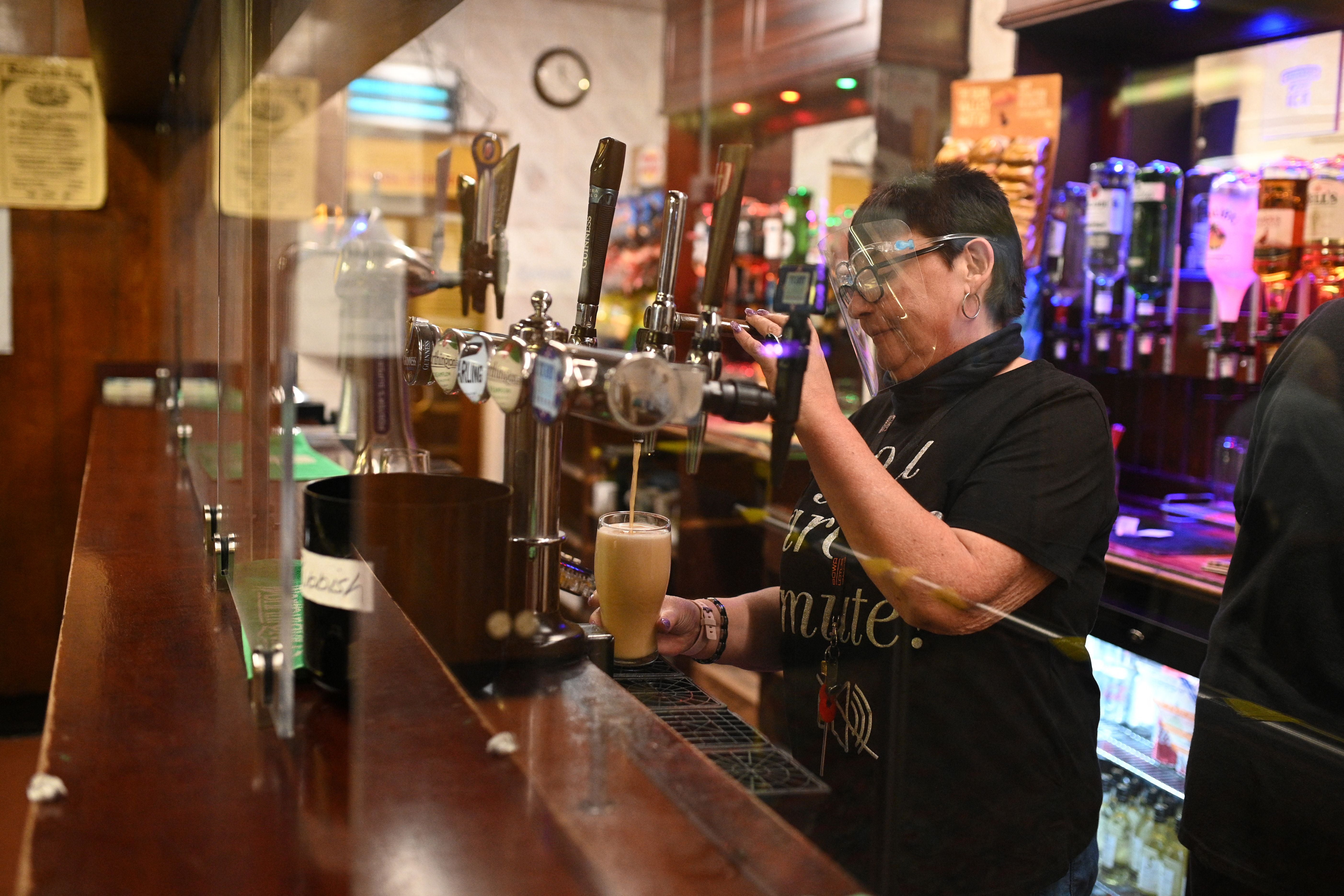Perspex screens unlikely to reduce transmission and may even increase risk
Ministers have been given ‘clear guidance’ perspex screens should be ditched

Your support helps us to tell the story
From reproductive rights to climate change to Big Tech, The Independent is on the ground when the story is developing. Whether it's investigating the financials of Elon Musk's pro-Trump PAC or producing our latest documentary, 'The A Word', which shines a light on the American women fighting for reproductive rights, we know how important it is to parse out the facts from the messaging.
At such a critical moment in US history, we need reporters on the ground. Your donation allows us to keep sending journalists to speak to both sides of the story.
The Independent is trusted by Americans across the entire political spectrum. And unlike many other quality news outlets, we choose not to lock Americans out of our reporting and analysis with paywalls. We believe quality journalism should be available to everyone, paid for by those who can afford it.
Your support makes all the difference.Perspex screens found in offices and hospitality venues are unlikely to drive down Covid-19 transmission, the government has been told.
Ministers have been given “clear guidance” that they should be ditched, as they appear to do more harm than good.
Since they block a room’s airflow, they could actually increase the spread of the virus, according to documents seen by Politico.
Responding to the report, the prime minister’s official spokesperson said: ”These claims come from a document that we do not recognise and it does not reflect the latest government thinking.”
They said that guidance on perspex screens would stay until evidence showed that a change was required, adding that there are “no current plans to legislate on ventilation standards”.
Plastic screens have been used on counters and between desks and tables since the end of the first lockdown.
The latest advice comes as the government has also been encouraged not to actively promote office-based working once restrictions ease further.
Earlier this week, Boris Johnson announced that stage four of the roadmap would be delayed by up to four weeks to assess data on the Delta variant, with a vote on the extension to be put before the Commons.
Scientists have said the delay is needed to allow more vaccine doses to be administered amid the spread of the more contagious variant. Nonetheless, the prime minister will likely face a sizeable backbench rebellion from Tory MPs when the delay is put to a vote.
Although Mr Johnson said 19 July would be the “terminus date” for coronavirus restrictions, he refused to give a “cast-iron guarantee” that all measures would finish then.
As ministers strategize on how the nation can best “live with Covid”, one professor has warned that the virus’ R number could leap up to seven without any checks in place.
Susan Hopkins said the Delta variant, first discovered in India, would be responsible for such an uptick if left unchecked.
Speaking to the Science and Technology Committee, she said that “if we were in the real world where we had none of the measures that we were seeing right now - we would estimate R greater than five and maybe up to seven”.
She stressed the importance of vaccination as a mitigation strategy and urged people to take caution, “particularly in healthcare settings”.
Additional reporting from PA
Join our commenting forum
Join thought-provoking conversations, follow other Independent readers and see their replies
Comments